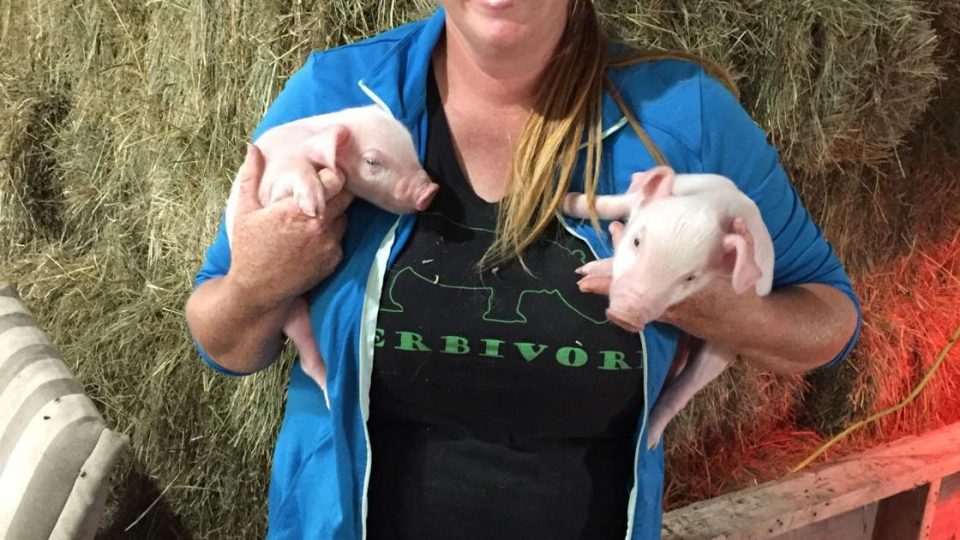That’s equal to about 10 ounces of meat per day, double what the USDA says is healthy for anyone. That level of consumption has been linked to rises in rates of obesity, diabetes, strokes and cardiovascular diseases.
“In this country, it’s almost gluttonous,” said Erin Yanz, who runs a rescue farm with about 150 animals on 33 acres in Hobart, Indiana.
Another 10 hens are on their way to Yanz’s farm after their previous owner-farmer had said they planned to bury them alive — yes, that’s legal in some states — because their farm was closing, Yanz said.
Yanz noted her vegan diet amid the pandemic means she’s not experiencing the same woes as other consumers.
“I’m feeling no shortage of anything, except for toilet paper,” she said concerning the few times she’s gone to the grocery store. “We felt no shortage of meats or things like that; I never bought them in the first place.”
At The Herbivorous Butcher in Minneapolis, which purveys wheat-based faux meats and dairy-free cheeses in a butcher shop-style atmosphere, “business is booming right now,” said Kale Walch, who co-owns the shop with his sister.
Yes, Kale, spelled like the vegetable, is his real name, a serendipitous coincidence.
The Herbivorous Butcher is moving forward with plans to build a larger production facility at a time when many other food makers and farmers are being forced to close. Walch said April 2020 was The Herbivorous Butcher’s best month ever business-wise.


